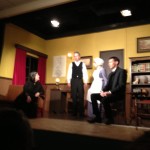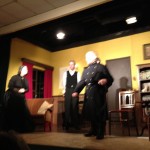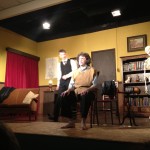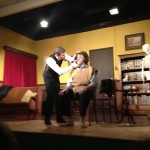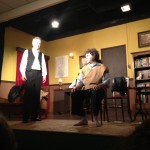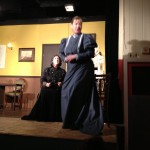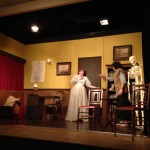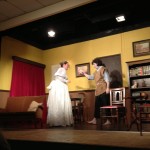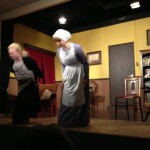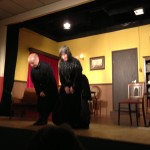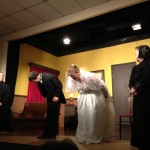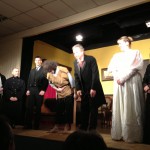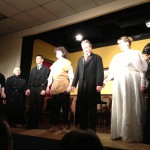Mary Shelley’s novel Frankenstein might have become known primarily as one of the classic horror nightmares, much exploited in movies such as the 1931 classic starring Boris Karloff as a monster rather than the modern prometheus envisaged in the novel, but in essence it is a human tragedy. The creature’s pathos is self-evident, wanting nothing more than to be understood and loved, emotions familiar to the best of us. Its incoherent rage is the consequence of being spurned by its creator, Victor Frankenstein, but it might equally apply to a child rebelling against a parent, for example.
Where the movie versions focus on the transformation of dead tissue into living flesh, stage versions must inevitably concentrate on the human aspects, move the audience with empathy for each character in turn and to portray the drama as if it were a Greek tragedy. The creature is a “rag doll”of a human being, but the reactions of all around to the experiment and its results are what makes for a compelling drama.
To give Writtle CARDS every credit, Michele Moody’s production of Tim Kelly’s adaptation from Shelley’s novel builds the tension of the drama while sensitive to the emotional depths. But this production works best when Frankenstein and Clerval are with the creature (Neil Smith, barely recognisable beneath his make-up.) Smith’s creature is a coiled spring of frustrated energy, swivel-eyed and threatening but like a child at the core, contrasting with the weary careworn fatalism of his creator.
Nick Caton’s brittle, brooding Frankenstein, teases out his revulsion in having given life, only for the creation to kill his nephew William. Trust does not come easily to the great scientist. Frankenstein can barely contain his disgust when the creature is nearby, but confronts his fears that the creature will ultimately come back to kill its creator with a strong sense that it is his destiny.
Given the nature of this work, he holds his cards close to his chest, confiding reluctantly in his jovial and inquisitive best friend, Henry Clerval (Kenton Church), but not to his mother (Liz Curley) – with fatal consequences and haunting screams. He only confesses “the crimes of Victor Frankenstein” to his softly-spoken wife, Elizabeth (Sarah Wilson) when the end is near and Inspector Ernst (Daniel Curley, excellent as ever) has men circling the Frankenstein house to protect its occupants. The story is then told in flashback, an old device but an effective means to communicate the subtle changes of mood that ratchet up pace and suspense to bring the play to its inevitable climax.
The mood is helped by a claustrophobic set, with the laboratory door centrally, looming over every thought and deed, while the downstage apron is almost a sounding board for the characters, notably Frankenstein. Credit too for the choice of classical music before the start and during the interval, though some deep and sinister music could also have been used in the play for additional menace.
Given that Frankenstein is not a play you often come across on the amateur circuit, the CARDS did well to revive it.

